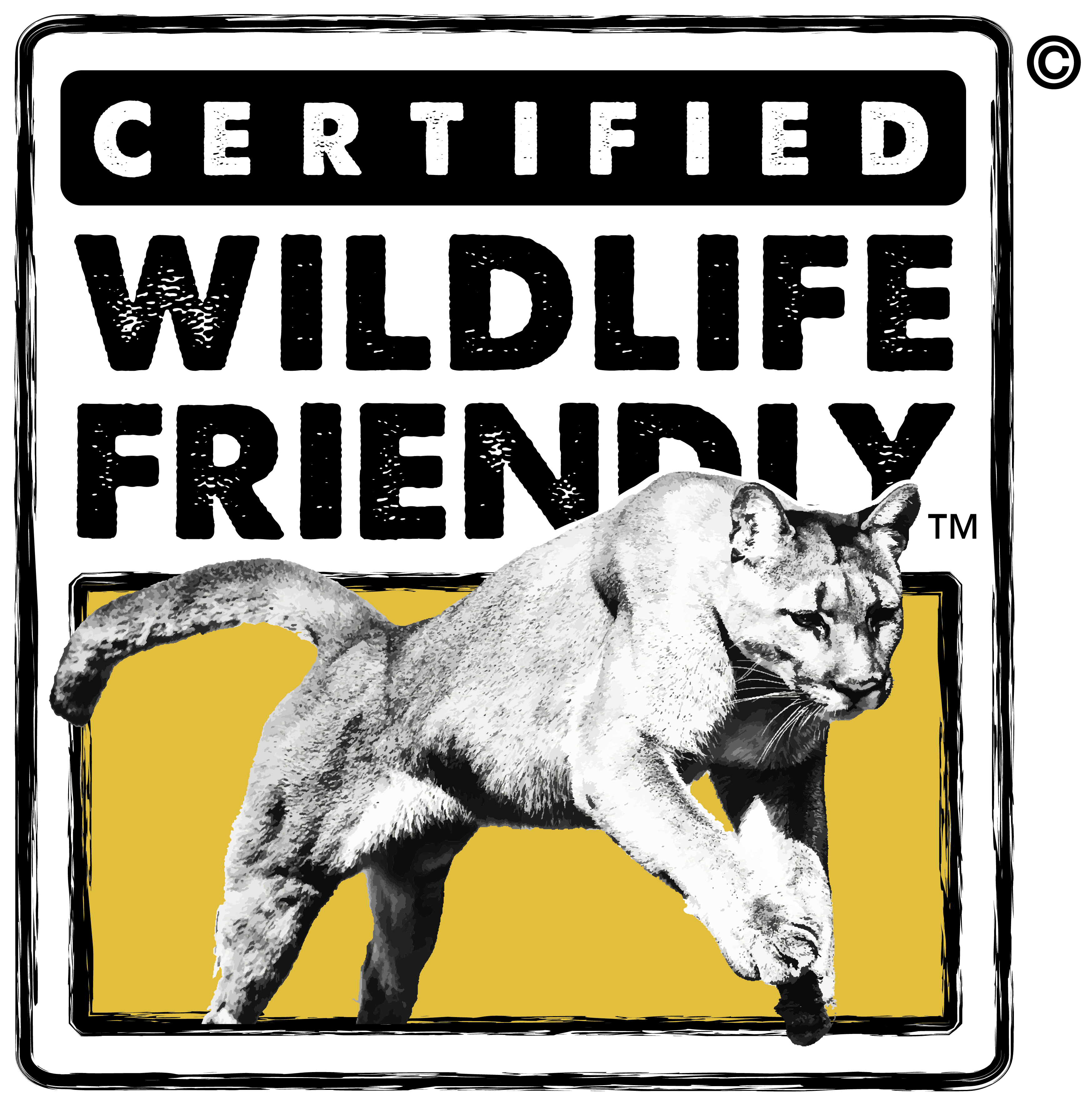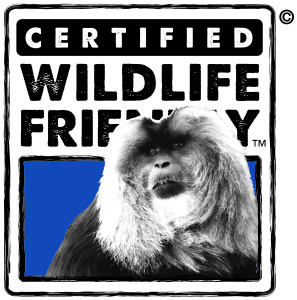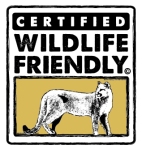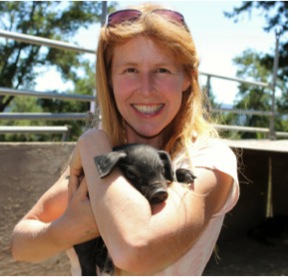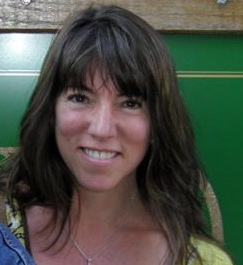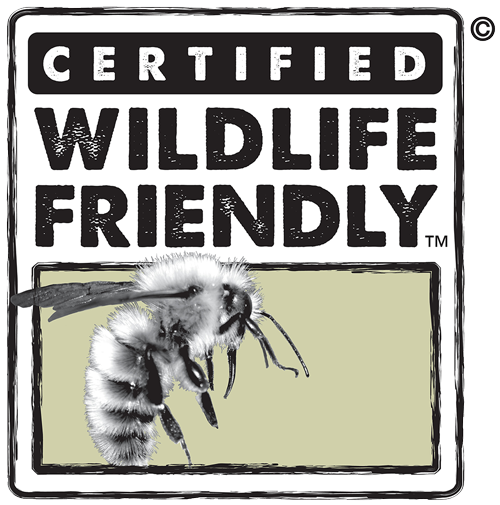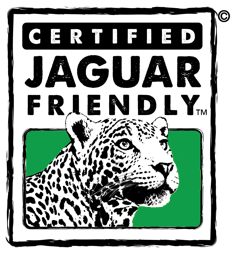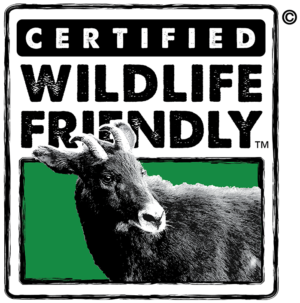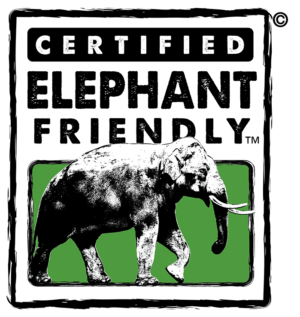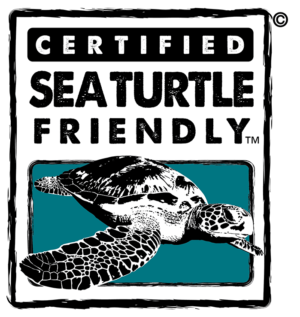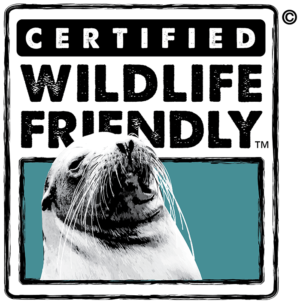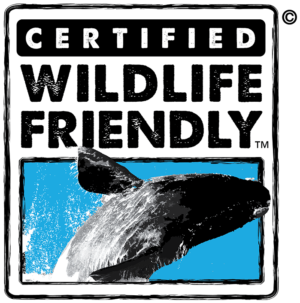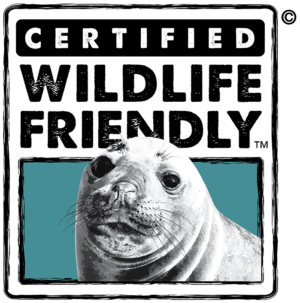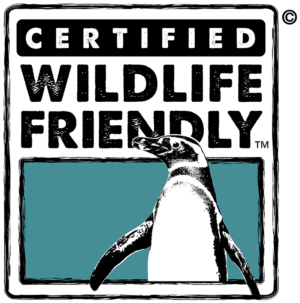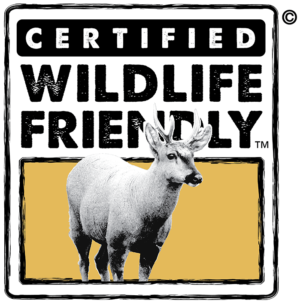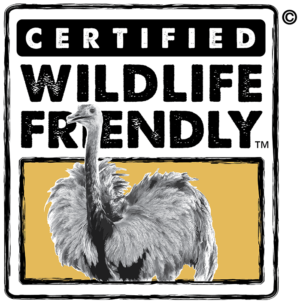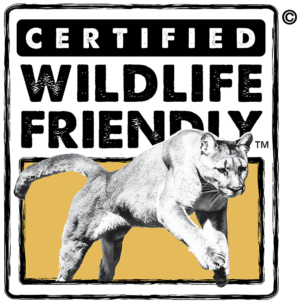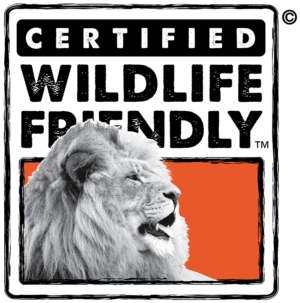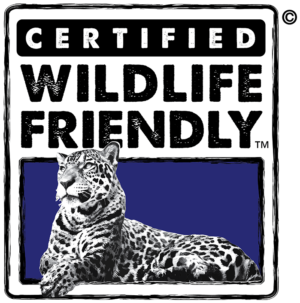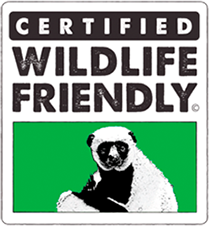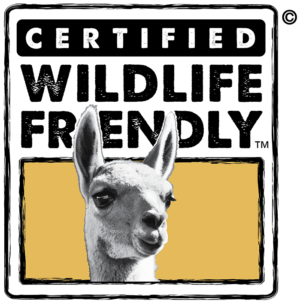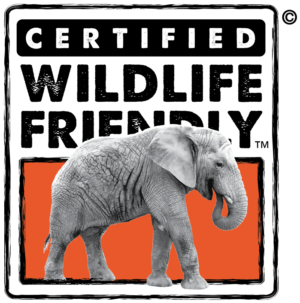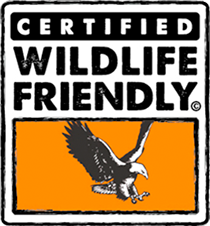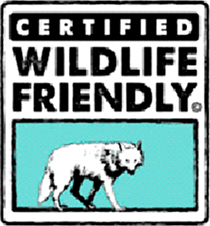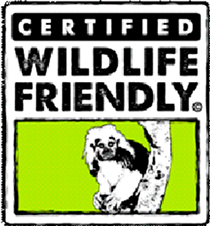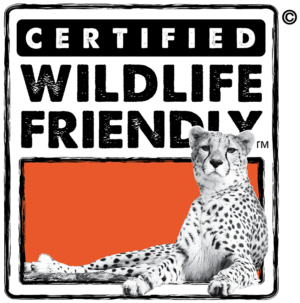New Slow Fashion Brand Violet Revolt Launches with Certified Wildlife Friendly™ Artisan Detailing
for immediate release
SEATTLE – 19 October 2021 – For fashion designer Lindsey Biondo it all started with her great-grandmother’s sewing machine from the 1970’s. “I found it stored away in a spare room one day while I was still in college and decided to do some prototypes while doing research into sustainable fibers.”
Through her research Biondo says she was shocked to learn about the ecological destruction that was a byproduct of the fashion industry which inspired her to action. She dedicated herself to finding a solution that checked all of the boxes including minimizing harm to the planet or its inhabitants. Violet Revolt was the result.
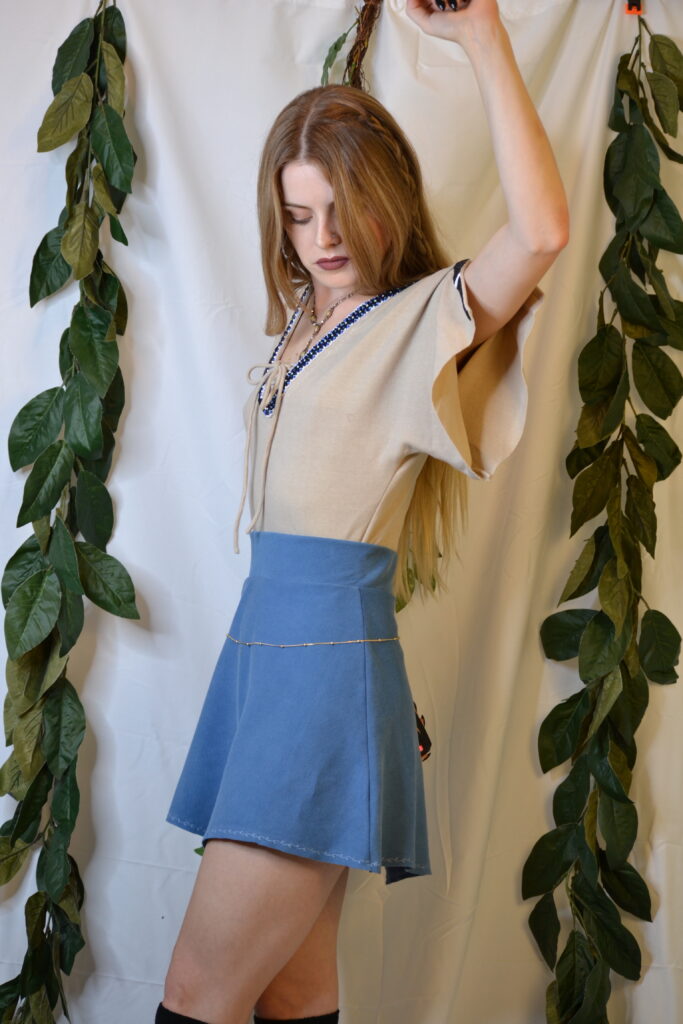
Each piece is crafted by hand in the United States and some of the pieces feature beading ethically sourced from women artisans in Northern Kenya whose project has been certified as Wildlife Friendly™ by the Wildlife Friendly Enterprise Network (WFEN).
“I initially started crafting this collection during my time spent working in Kenya. I always knew I wanted to find a way to have each collection contribute to wildlife conservation. During my time there, I connected with a local organization, BeadWORKS Kenya, that employs Northern Kenyan pastoralist women to creating traditional beading. Over the course of 1.5 years I collaborated with them on creating designs that fit in with my wearable art, and we ended up coming up with a method where I would ship them Oeko-Tex certified canvas for them to bead, which they would then ship to me in the US, where I hand sew each beading section onto my plant-dyed, 100% GOTS certified cotton pieces,” explains Biondo.
The beadwork enterprise provides a source of income to women in this region of Kenya and is part of a larger wildlife conservation project managed by the Northern Rangelands Trust.
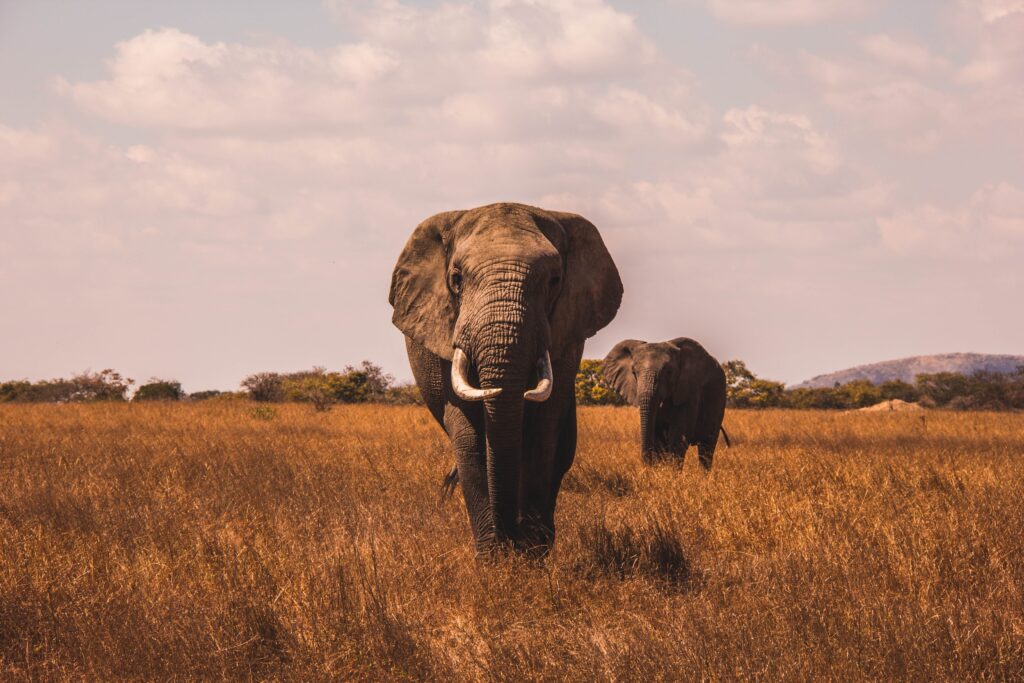
“We love the entrepreneurial spirit of the young designers that are coming to us seeking sustainable solutions that protect people and wildlife,” said Julie Stein, Executive Director and Co-founder of WFEN. “Lindsey’s new collection is about incremental changes consumers can make through their purchasing decisions to have a positive impact which in this case takes the form of wearable art with a unique story.”
The Endless Collection can be purchased via: violetrevolt.com
###
About Violet Revolt
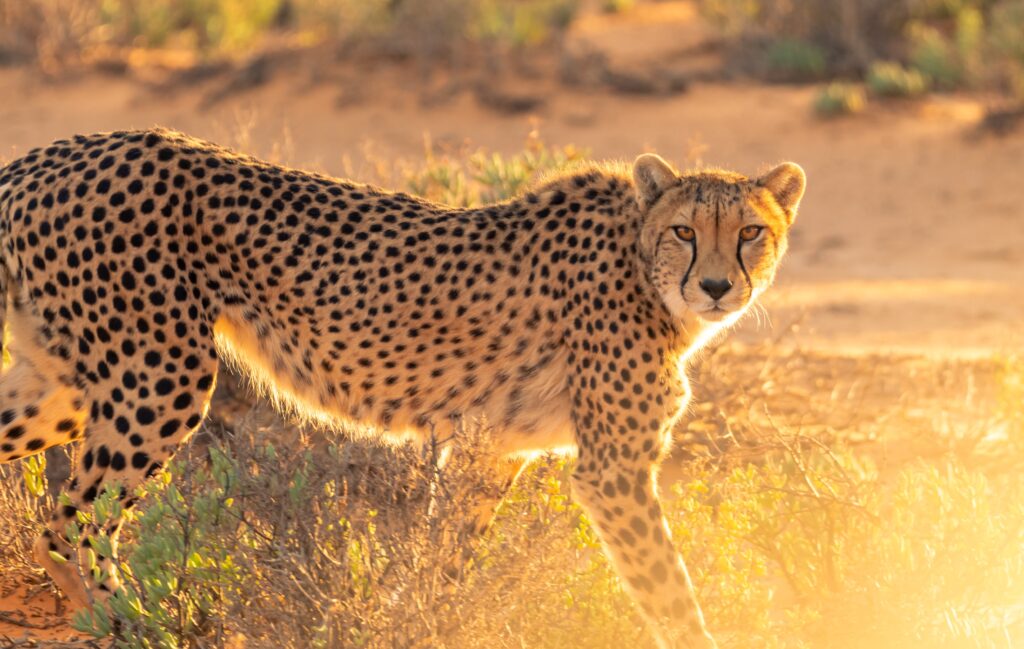
Violet Revolt is a sustainable, slow fashion brand, crafting one-of-a-kind pieces from naturally dyed, organic plant fabrics. Some pieces feature traditional beading done by an organization that employs women in Northern Kenya and contributes to local wildlife conservation. A portion of every purchase from Violet Revolt is donated to select international conservation nonprofits.
Violet Revolt was created to clothe the world with purpose through sustainable, wearable art.
Instagram: @thevioletrevolt
About Wildlife Friendly Enterprise Network
WFEN and its certification programs represent grassroots farmers, ranchers, herders, artisans, indigenous peoples and conservation heroes from around the world including two World Bank Development Marketplace Award winners, a U.N. Equator Prize winner, leadership in the world’s marketplace for REDD+ Carbon Offsets, and a Time Hero for the Planet. Wildlife Friendly® products contribute to the conservation of over fourteen million hectares of diverse wetlands, forests, and grasslands; protect keystone endangered species in Asia, Africa, Europe, and Latin and North America, including the slow loris, snow leopard, elephant, cheetah, red panda, and wolf; and benefit over 400,000 people through increased food security, income and employment. For more information visit: www.wildlifefriendly.org, Instagram: @wildlifefriendly, Twitter: @wfen
Contact: info@violetrevolt.com
Wildlife Friendly Enterprise Network becomes first wildlife conservation organization to benefit from 2nd Life’s Electronics Buy Back Program for nonprofits
RICHMOND, VIRGINIA – MAY 30 2018 2nd Life, a Richmond based company whose mission is to responsibly repurpose pre-owned consumer electronics and computing assets via proprietary remarketing techniques and cutting edge repair capabilities, has launched an exciting new partnership with the Wildlife Friendly Enterprise Network (WFEN) to benefit the world’s most endangered wildlife called “Cash in for Wildlife.”
The world generates over 44.7 million metric tonnes of e-waste – or 4500 Eiffel Towers – annually, according to the United Nations report Global E-waste Monitor 2017, with only 20% of that recycled through appropriate channels. This presents a challenge to sustainable development and achievement of the Sustainable Development Goals (SDGs). The amount of e-waste is expected to increase to 52.2 million metric tonnes by 2021. The UN estimated the total value of all raw materials present in e-waste to be approximately 55 Billion Euros in 2016, which is more than the 2016 Gross Domestic Product of most countries in the world. With many product life cycles measured in months as consumers trade up to newer technology, and a higher percentage of consumers owning multiple devices, circular economy models need to be adopted to encourage “closing the loop” through recycling while also mitigating pollution of the environment.
E-waste at the end of its life cycle includes toxic chemicals such as arsenic, mercury, flame-retardants and lead. When illegally or improperly disposed of these toxins seep into the ground, polluting soil and groundwater and contaminating microorganisms which fish feed upon; improper burning of e-waste releases toxins into the air. E-waste exposure can lead to diseases such heart disease, cancer and can damage DNA. Children are especially vulnerable to these health risks from e-waste exposure. Once food is contaminated these toxins and heavy metals move up the food chain leading to bioaccumulation and biomagnification in apex predators including humans.
“The electronics industry impacts humans, the environment and wildlife at both ends of its life cycle” said WFEN Director and Co-founder Julie Stein. “At the source, profits from illegally mined ‘conflict minerals’ like tin, tantalite or coltan, tungsten and gold, from the eastern part of the Democratic Republic of Congo, contribute to ongoing violence in the country and illegal miners living inside protected areas are negatively affecting endangered wildlife including the critically endangered Grauer’s Gorilla whose numbers have declined by 77%, as well as the endangered Eastern Chimpanzee, and the endangered Okapi which is only found in the DRC and whose population has plummeted by 50% due to the related triple threats of deforestation, mining and bushmeat hunting by illegal miners. Our enterprise model is to create alternative livelihood opportunities such as Wildlife Friendly™ sustainable farming, tourism and handicrafts for the benefit of wildlife and communities so that they do not have to resort to illegal activities which harm the environment. This new partnership with 2nd Life will help us on several fronts to achieve our mission.”
“We designed our proprietary consumer electronics buyback platform to support retailers like Best Buy and Amazon by offering a turnkey solution so that their customers can trade-in their no longer needed electronics towards purchase of new items,” said Seth Schmidt, Chief Marketing Officer for 2nd Life. During 2016 we identified an opportunity to create a fundraising oriented platform, building on what we learned serving the for-profit sector. Essentially, the fundraising solution allows consumers to sell their used electronics from over a dozen popular categories including smartphones, tablets, laptops, drones, digital cameras and more in order to support the causes that mean the most to them. Consumers are paid a competitive value for their items and can elect to donate all or a portion of their payment to the cause, in this case, the Wildlife Friendly Enterprise Network.”
According to Michael Feibelman, President and CEO of 2nd Life, the company has three solutions to address these challenges: IT Asset Disposition for responsible end-of-life corporate computing and mobile asset refreshes; community electronic waste collection services; and now, the buyback solution that supports non-profits like WFEN and others. The goal of The 2nd Life buyback program is to generate an ongoing revenue stream for these organizations and their partners by utilizing the 2nd Life Consumer Electronics Buyback Program, which allows consumers to quickly and easily get paid for their pre-owned consumer electronics while at the same time supporting a cause, in this case helping to protect wildlife around the world.
“We are extremely grateful to Michael and his team at 2nd Life for their interest in our work and are proud to be their first and only wildlife conservation partner,” said Ms. Stein. “This partnership makes 2nd Life our newest Founding Corporate Network member along with other leading edge sustainability companies.”
For companies or individuals who would like to become part of this program with 2nd Life to benefit wildlife please contact Seth Schmidt at 2nd Life or visit https://wfen.fundello.org to cash in your digital cameras and camcorders, cell phones, laptop computers, drones, and more for the benefit of the world’s endangered wildlife.
###
About 2nd Life
2nd Life extends the useful life of all electronics through it’s primary services of IT asset disposition (ITAD) for the enterprise, consumer based trade-in and buyback solutions for retailers, manufacturers, non-profits and schools and it’s expertise in electronics repair all the way up to circuit board level work. For more information, visit https://2ndlifeinc.com
About Wildlife Friendly Enterprise Network
WFEN and its family of brands represent grassroots farmers, ranchers, artisans, indigenous communities and conservation heroes from around the world including two World Bank Development Marketplace Award winners, a U.N. Equator Prize winner, leadership in the world’s marketplace for REDD+ Carbon Offsets, a Time Hero for the Planet, and a National Geographic Big Cats Initiative grantee. Certified Wildlife Friendly® products contribute to the conservation of over twelve million hectares of diverse wetlands, forests, and grasslands; protect keystone endangered species in Asia, Africa, Europe, the Americas, including the Snow Leopard, Elephant, Cheetah, and Wolf; and benefit over 200,000 people through increased food security, income and employment. For more information visit: www.wildlifefriendly.org

(c) Primal Pastures
Warner Springs and Murrieta farm raises pastured chickens, rebuilds healthy, regenerative soils and grasslands, and coexists with wildlife.
FOR IMMEDIATE RELEASE
Warner Springs, CA, September 18, 2016 Most people don’t set up a wholesale pastured poultry operation in an area known for its mountain lion activity as much as for its orchards. Yet for farmer Paul Grieve of Pasturebird, flourishing habitat is an integral part of farming. “The important thing to us is that we build an ecosystem. Our role is to steward the land and grow a great environment for Mother Nature.”
On its newest farm site—100 acres of a 1000 acre parcel that meets the Palomar and Iron Spring Mountains in Warner Springs—Paul and his family are restoring a former potato field to permanent pasture. They ensure wildlife corridors remain open and use a variety of methods to protect their chickens, in order that a variety of wildlife can pass through the property. “We end up seeing snakes, rabbits, birds, worms, deer, and coyotes. I love being able to see those guys come through the farm but not interrupt our operations. Knowing that mountain lions are around makes it even better. It means we’re doing something right.”
This sentiment, together with a variety of husbandry practices to meet the farm’s stewardship mission, has enabled Pasturebird and sister location, Primal Pastures, to become Southern California’s first farm to achieve Certified Wildlife Friendly® status. Certified Wildlife Friendly® recognizes farms and ranches committed to regenerative practices that enable wildlife and livestock to coexist. The farm is working to restore perennial grasslands. It uses managed, multi-species grazing practices to improve soil. It conserves wildlife corridors, and relies upon proactive, humane practices to deter predators, among other key attributes. Along with peers around the globe, Pasturebird and Primal Pastures are part of a progressive wave of agriculture that models the critical role of farms and ranches in sustaining wildlife and habitat.
The farm’s efforts have been noticed by the Los Angeles Dodgers and the Lakers, both of which have accounts. “Pasturebird’s commitment to transparency and raising birds the way they were meant to live is truly inspiring,” says chef Alan Latourelle of Wolfgang Puck, another satisfied customer. Kitchen workers from the hospitality group’s Southern California staff recently toured the farm, gaining first-hand experience of what Pasturebird terms simply “real chicken.” Inspired by renowned grass farmer Joel Salatin of Virginia, Paul Greive and his family are committed to creating a scale-alternative to factory farming that cares for the land, the animals and consumers’ health.

(c) Primal Pastures
The farm started simply enough, 5 years ago, from the family’s search for healthy food for its own use: “We were paying a bunch of money for labels, but not good food,” explains Paul. “We wanted to eat meat that was not bad for the environment or our bodies,” he explains. “We couldn’t find what we were looking for.” And, so what began with an order of 54 chickens for personal use turned into a vocation for 2 generations and multiple branches of Paul’s family. Pasturebird, a wholesale operation opened in 2015, builds upon the success of Primal Pastures, the family’s direct-to-consumer farm in Murrieta.
Livestock guardian dogs are integral to the farm’s ability to coexist with wildlife. While predator losses were significant in the farm’s first true commercial year, the family quickly realized the use of lethal control “didn’t jibe at all with what we were doing,” says Paul. Rather, “we were working to “heal the land, heal the soil, and participate with nature.” Today, the farm raises its own Anatolian Shepherd/Great Pyrenees mix guardians. The dogs help to protect the flock, which is moved to fresh pasture daily in open-air, floorless chicken tractors. The farm vision includes having its operations become carbon-neutral in a few years, by offsetting the energy put into tractors and other equipment through its soil building activities.
The farm’s practices mean it is a regional model. Winston Vickers, a veterinarian with the Southern California Mountain Lion Project states: “I am thrilled that Paul and his team are leading the way in the region by taking measures to not only protect their chickens and raise healthier ones, but simultaneously helping to keep wildlife populations and the ecosystems healthy. I applaud their foresight and leadership, and urge others to follow their great example.”
Its efforts mean great food, too. “Seeing chickens that you can tell are happy and healthy is refreshing in this day and age. I never thought I would be so excited about chickens” continues Chef Latourelle. Thank you Pasturebird for what you do, it makes our jobs much easier.”
###
About Pasturebird and Primal Pastures
Primal Pastures (direct to consumer) and Pasturebird (wholesale) farms raise pastured chicken in Southern California. By rotating the chickens to fresh pasture every single day, the farm’s chicken is not only healthy and delicious but also goes beyond sustainability to rebuild healthy, regenerative soils and grasslands.
Instead of using antibiotics to fight disease within the flock, Pasturebird and Primal Pastures use a healthy environment of pasture, sunshine, fresh air, and space to prevent sickness. Instead of marketing vegetarian-fed chicken (chickens are not vegetarians), we want our chickens to eat as many bugs and worms as possible. And instead of hiding our farm from the public, we know that our best marketing is transparency, so we regularly open the ranch for tours and events. For more information, contact Paul Greive via 855-4PASTURE or paul@pasturebird.com and visit www.pasturebird.com and www.primalpastures.com
About Wildlife Friendly Enterprise Network
The Wildlife Friendly Enterprise Network and its Certified Wildlife Friendly® and Predator Friendly® programs represent farmers, ranchers, artisans and conservation heroes from around the world. Participating farms in North America maintain and enhance wildlife habitats and employ a mix of careful observation and proactive practices to allow wildlife and livestock to coexist.
Certified Wildlife Friendly® products contribute to the conservation of over twelve million hectares of diverse wetlands, forests, and grasslands; protect keystone endangered species in North America, Europe, Africa, Asia and Latin America, including wolves, elephants, cheetahs, red pandas and snow leopards, and benefit over 200,000 people through increased food security, income and employment. For more information visit: www.wildlifefriendly.org
Contact:
Paul Greive, Chief Executive Officer
Pasturebird Poultry Company
855-4PASTURE; paul@pasturebird.com
Wild Kaapi™ empowers coffee drinkers to do good with every cup of Certified Wildlife Friendly™ coffee
FOR IMMEDIATE RELEASE
WESTERN GHATS, INDIA: JUNE 1 2017—The Wildlife Friendly Enterprise Network (WFEN), a global community dedicated to the development of products and tourism that contribute to the conservation of threatened wildlife and to the economic vitality of rural landscapes, is pleased to announce the awarding of Wildlife Friendly™ Certification to Wild Kaapi™ coffee company.
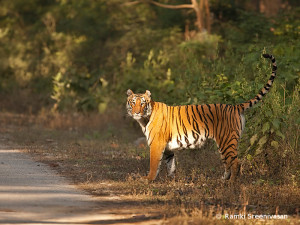
Tiger in the Western Ghats. Photo: Ramki Sreenivasan
Wild Kaapi™ emerged out of a scientific effort to measure on-farm biodiversity, market dynamics and the management actions of more than 1100 farmers in India’s Western Ghats. The Western Ghats of India are a global biodiversity hotspot home to the largest population of wild tigers, elephants and endemic amphibians and birds not found anywhere on the planet. The coffee landscapes of Karnataka present ideal conditions for promoting wildlife-friendly practices in coffee production.
Wild Kaapi’s coffee is sourced from coffee farms that are now certified Wildlife Friendly™ through rigorous scientific audits for birds, butterflies, mammals, amphibians and trees. The vision for the company is to build sustainable livelihoods and create a network of coffee growers who foster thriving populations of wildlife on their lands while delivering the highest quality of freshly roasted coffee to consumers.
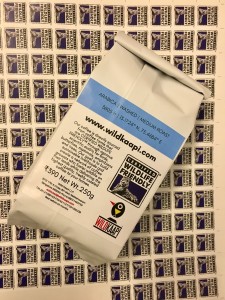
At launch Wild Kaapi™offers single origin coffees from Wildlife Friendly™ farms in the Chikmagalur District in Karnataka, the birthplace of coffee in India. The freshly roasted coffee is sold online at www.wildkaapi.com and can be custom ground to the coffee connoisseur brewing preferences be it an Aeropress, Chemex or Moka Pot.
“Agricultural lands are increasingly important as critical refuges and corridors for wildlife globally who are facing multiple threats from climate change to habitat conversion” said Julie Stein, Executive Director and co-founder of WFEN. “We are thrilled to welcome Wild Kaapi™ as the first Wildlife Friendly™ coffee company in the world. Wild Kaapi™ sets a high standard for ensuring biodiversity on coffee farms in India’s Western Ghats truly ensuring that we as consumers are empowered to support wildlife conservation and sustainable agricultural with every cup of coffee – a true triple bottom line win.”
###
About Wildlife Friendly Enterprise Network
WFEN and its certification programs represent grassroots farmers, ranchers, artisans, indigenous peoples and conservation heroes from around the world including two World Bank Development Marketplace Award winners, a U.N. Equator Prize winner, leadership in the world’s marketplace for REDD+ Carbon Offsets, a Time Hero for the Planet, and a National Geographic Big Cats Initiative grantee. Certified Wildlife Friendly® products contribute to the conservation of over twelve million hectares of diverse wetlands, forests, and grasslands; protect keystone endangered species in Asia, Africa, Europe, and Latin and North America, including the Snow Leopard, Tiger, Elephant, Cheetah, Red Panda, and Wolf; and benefit over 200,000 people through increased food security, income and employment. For more information visit: www.wildlifefriendly.org
Wild Kaapi
Visit: www.wildkaapi.com
https://www.facebook.com/wildkaapi
https://www.instagram.com/wildkaapi
https://www.twitter.com/wildkaapi
Contact:
Wild Kaapi, Avinash Sosale: Avinash@wildkaapi.com
Wildlife Friendly, Julie Stein: Julie@wildlifefriendly.org
BeadWORKS, which empowers women and conserves wildlife in northern Kenya, is now Certified Wildlife Friendly™
FOR IMMEDIATE RELEASE
ISIOLO, kenya: – 31 march-2017– The Wildlife Friendly Enterprise Network (WFEN), a global community dedicated to the development and promotion of products and tourism that contribute to the conservation of threatened wildlife and to the economic vitality of rural landscapes, is pleased to announce the awarding of Wildlife Friendly® Certification to BeadWORKS Kenya, a business line of Northern Rangelands Trading Limited (NRTT), providing conservation-linked economic opportunity to people and communities in northern Kenya.
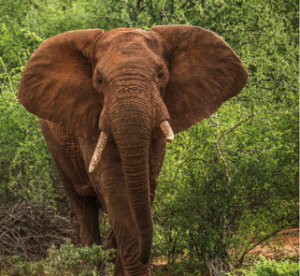
photo credit Ami Vitale
When you empower women in northern Kenya, you are supporting children’s education, boosting local economies and protecting wildlife. Every BeadWORKS item is handcrafted by one of over 1,000 women from 9 NRT community conservancies. The women gather together under the shade of an acacia tree to craft individual beaded items for sale all over the world. Through BeadWORKS, they are able to earn a living using their traditional beading skills rather than through livestock grazing, charcoal production and other environmentally damaging activities.
BeadWORKS empowers pastoralist women and changes their attitudes about local wildlife as they discover the connection between bead sales and wildlife protection. The ripple effects of these attitudes spread through their families and communities, creating broader impacts for wildlife. Many species – in particular elephants – are thriving as sustainable businesses grow around conservation. Since 2012, elephant poaching in northern Kenya’s community conservancies has dropped by 53%.
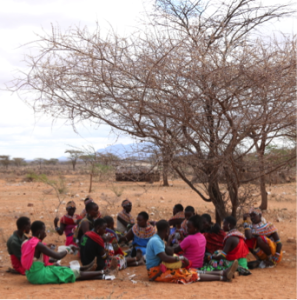
By buying Certified Wildlife Friendly® products from Beadworks consumers are helping empower women and families, and conserve wildlife and natural resources in northern Kenya.
###
About Wildlife Friendly Enterprise Network
WFEN and its certification programs represent grassroots farmers, ranchers, artisans, indigenous peoples and conservation heroes from around the world, including two World Bank Development Marketplace Award winners, a U.N. Equator Prize winner, leadership in the world’s marketplace for REDD+ Carbon Offsets, a Time Hero for the Planet, and a National Geographic Big Cats Initiative grantee. Certified Wildlife Friendly® products contribute to the conservation of over twelve million hectares of diverse wetlands, forests, and grasslands; protect keystone endangered species in Asia, Africa, Europe, and Latin and North America – including the snow leopard, tiger, elephant, cheetah, red panda, and wolf – and benefit over 200,000 people through increased food security, income and employment. For more information visit: www.wildlifefriendly.org
About BeadWORKS
BeadWORKS Kenya is a business line of Northern Rangelands Trading Limited, providing conservation-linked economic opportunity to people and communities in northern Kenya. For more information visit: https://www.beadworkskenya.com/
Instagram @beadworkskenya
Facebook: Beadworks Kenya
https://www.facebook.com/beadworkskenya/
Contact
BeadWORKS
Beatrice Lempaira – beatrice.lempaira@nrt-kenya.org
Wildlife Friendly
Julie Stein: Julie@wildlifefriendly.org
FOR IMMEDIATE RELEASE
Madrone Coast Farm First in California to Achieve Certified Wildlife Friendly® Status for coexistence with Mountain Lions
Madrone Coast Farm of Felton, CA Provides Habitat for Pumas
FELTON, CA (October 28 2014) Madrone Coast Farm is the first farm in California to achieve Certified Wildlife Friendly® status in recognition of its wildlife stewardship practices, following an ISO-compliant third-party audit process. “We feel that coexistence with wildlife, including mountain lions, is very important to the health of the local ecosystem. Farmers and ranchers can successfully use proactive practices to coexist with predators,” says farmer Alison Charter-Smith.
Charter-Smith and her husband, Tony Jaehnichen, raise heritage chickens, ducks, goats, sheep, and pigs, and offer pasture-raised chicken and duck-eggs, pork and wool at 4 farmer’s markets throughout the Santa Cruz area. The vast majority of their farm is wooded and accessible to wildlife, including 3 juvenile mountain lions seen on the farm this past summer. In addition to maintaining ponds to provide water, Charter-Smith and Jaehnichen are working to increase the habitat value of their land for terrestrial and avian visitors alike. The farm has nesting boxes for swallows, bats, owls and bees. Black-tailed deer, coyotes and bobcats are also in the vicinity.
To keep stock safe, Madrone Coast Farm keeps a close eye on its animals, especially at vulnerable periods, such as lambing, corrals stock at night, and engages the help of a pair of Maremma livestock guardian dogs. “I feel great knowing my food purchases support wildlife,” says Madrone Coast customer Bonnie Doran. “It’s important to me to know the food I’m eating is not adversely impacting the ecosystem. I was raised to respect the wildlife that have always been here and belong. We need to coexist with native species, not to kill them off.”
“The Certified Wildlife Friendly® label helps consumers to vote with their pocketbooks. Consumers can now support free-ranging wildlife as they buy from local farms,” says Julie Stein, Executive Director of the global Wildlife Friendly Enterprise Network. Certified Wildlife Friendly® farms and ranches support wildlife, biodiversity, and a host of ecosystem services. Read more »
WILDLIFE FRIENDLY ENTERPRISE NETWORK WELCOMES GLOBAL FASHION BRAND STELLA MCCARTNEY AS A FOUNDING CORPORATE MEMBER
Stella McCartney Becomes the First Global Fashion Brand to Support the Development of Wildlife Friendly® Products That Help People and the Planet
FOR IMMEDIATE RELEASE
London – April 17 2014 – The Wildlife Friendly Enterprise Network (WFEN), a global community dedicated to supporting products that conserve threatened wildlife and contribute to economic vitality in rural landscapes, and Stella McCartney, a brand with a commitment to sustainability, are pleased to announce an exciting new partnership dedicated to protecting wildlife.
WFEN Corporate Network Members are working towards sourcing Wildlife Friendly® products through their own supply chains and share the WFEN vision for a world where people and wildlife not only coexist but thrive. WFEN Corporate Members are committed to creating beautiful products that are made in a manner that respect the producers, land, and wildlife. Stella McCartney, supports WFEN in its mission to empower and educate consumers and to create change on the ground by providing a market incentive for farmers, ranchers and local communities to improve their production practices. By linking the worlds of sustainable agriculture and sustainable fashion, each garment produced has the potential to tell a story about responsible consumption and can support sustainability throughout the fashion supply chain.
“This unique partnership will benefit global consumers by providing a wider range of truly Wildlife Friendly® choices and enabling them to vote their values with their pocketbooks,” said Julie Stein, Executive Director of Certified Wildlife Friendly®. “Stella McCartney has consistently embraced a Triple Bottom Line approach to business. We applaud the brand’s leadership in initiating efforts towards responsible sourcing across a range of Wildlife Friendly® fibers, textiles and raw materials from around the globe. We don’t have to choose among people, planet or profit, but instead can work to benefit both business and biodiversity.”
WFEN membership is open to businesses and non-governmental organizations who are committed to the WFEN mission and who actively contribute to Wildlife Friendly® business practices. This contribution may be through building Wildlife Friendly® supply chains, production, sourcing and selling Certified Wildlife Friendly® products, building increased awareness and demand with consumers, and implementing best practices for biodiversity conservation and business.
About Stella McCartney
Stella McCartney is a 50/50 joint venture partnership between Ms. Stella McCartney and Kering established in 2001. A lifelong vegetarian, Stella McCartney does not use any leather or fur in her designs. The brand’s ready-to-wear, accessories, lingerie, fragrance, kids and adidas by Stella McCartney collections are available through 35 other free-standing stores including London, New York, Los Angeles, Tokyo, Hong Kong, Paris, Milan and Shanghai, as well around 600 wholesale accounts in key cities worldwide. For additional information, please visit: www.stellamccartney.com. Read more »
August 24 2012 The Board of Directors of Certified Wildlife Friendly™ an emerging global eco-label, is pleased to announce it has hired its first Executive Director, Julie Stein. Founded in 2007 and unveiled at the World Conservation Congress in Barcelona in 2008, the Wildlife Friendly Enterprise Network (WFEN) is a global community of conservationists, businesses, producers and harvesters dedicated to the development and marketing of products that conserve threatened wildlife while contributing to the economic vitality of rural communities. Ms. Stein will help the organization reach its mission of setting the global standard for wildlife friendly enterprise and assisting members to reach new and dynamic markets. Read more »


